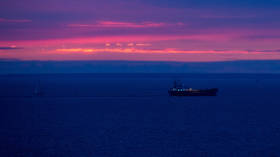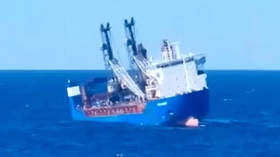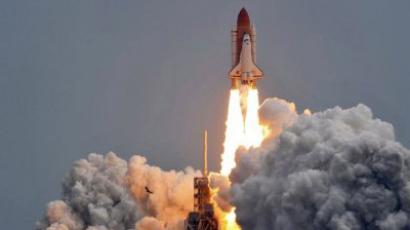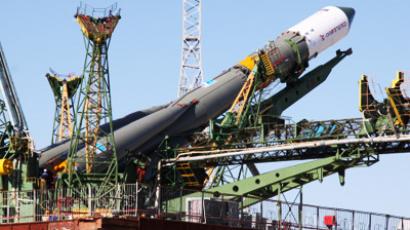No space exploration without Russia
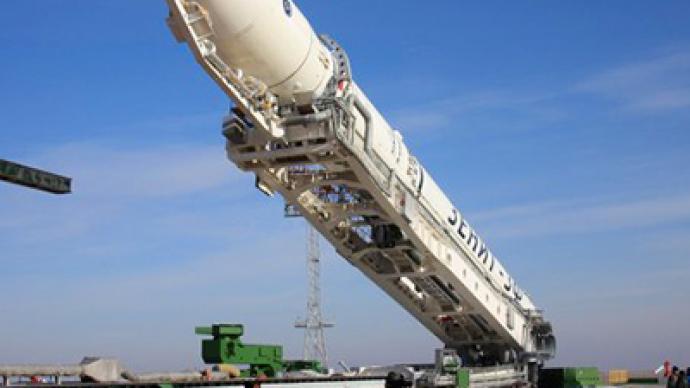
Possessing the biggest-yet space telescope, just launched into orbit, and the only manned spaceship that can take cosmonauts to the ISS, Russia’s role in world space programs is irreplaceable, the country’s space chief Vladimir Popovkin told RT.
RT:Well, America’s Hubble will now have company in orbit. Is the Russian telescope looking to discover something the Hubble has been missing during all these years it has been operating?Vladimir Popovkin: Foreign scientists, not Russian ones, say that our telescope is more interesting than the Hubble Space Telescope in terms of making new findings. It’s a very profound science that implies a high degree of relativity of the final result. It’s difficult to forecast anything here. The telescope makes it possible to monitor the emergence of new stars and galaxies in a radio frequency band, to see how the whole process goes and gather some statistical data on the basis of which it would be possible to predict the dynamics of development of our planet and the Universe and to understand where we have all come from and what’s waiting for us in the future. In this respect, this is a historical event which marks Russia’s return to space science.RT: America is also about to send its new telescope, the Webb, which is supposed to replace Hubble in 2040. Is there a new space research race between Moscow and Washington or are they working together? VP: It’s not a matter of racing against each other, although many would like to see that happen simply because an element of competitiveness has always been more interesting and attractive to people. First, it’s an attempt to influence voters who determine this policy, on the one hand. On the other hand, it’s also an attempt to influence the authorities with the aim of securing more money from the budget to realize their huge space ambitions.RT:It sounds like it’s nothing but rhetoric. You say there’s no Cold War-style space race?VP: I don’t see any race today. In most cases, whatever you say, we deal with international co-operation. American satellites are fitted out with Russian equipment. We install European equipment in our satellites. An Italian satellite and a Chinese mini satellite are to be launched soon. All this has become possible through international co-operation. But, of course, it’s prestigious to be a space super power. This club is still not a large one. That’s why everybody’s trying to join it.RT:With America’s shuttle program coming to an end, Russia’s set to become the only country capable of sending people into space. How long will that monopoly last?VP: The United States is planning to create a new space launch program for manned ships and build a new manned spaceship with the help of investment from the private sector by 2016. Let’s wait and see how things go. I think that today Russia’s role is irreplaceable because at the moment the world has only one manned spaceship, the Soyuz, which is capable of taking cosmonauts to orbit, including the International Space Station (ISS).RT: But that is a great responsibility too.VP: If we were unprepared, we wouldn’t have signed an agreement with NASA and the European Space agency on the delivery of cosmonauts. We are confident that we are going to fulfill that task. RT:The American media is very emotional over shutting down the shuttle program. They think it’s a shame. Do you think that Washington is making a mistake?VP: The Americans should come to terms with this reality. There’s nothing they can do about it, although the media’s reaction was painful. They think that it’s a strategic blunder in the field of developing the construction of manned spaceships. The shuttles have exhausted themselves from the point of view of reliability and efficiency. They turned out to be expensive toys which have not completely justified the expense.RT: America names exploring Mars among its top space priorities. What is Russia mostly focused on?VP: Those who say a flight to Mars is a top space priority understand that it’s a very long-term task which is unlikely to be achieved while I hold this post. This fact makes the life of those who set such priorities easier and more comfortable. In my view, there should be one main objective, it may even be the flight to Mars program, but it should develop with account taken of what’s going to happen today, tomorrow or the day after tomorrow. Because people need some tangible results, and the taxpayer who contributes huge sums of money to space exploration wants to see a return on his or her investment. That is why our program is split into a whole number of priorities. Yes, today we are deciding on a global issue as to what the next direction for manned space exploration is. In what way should it develop? During my meetings with space agency heads in Europe and, of course, with NASA Chief Charles Bolden as well as the French, the British, the Germans and the Italians, the main pool, so to speak, who determine space policy, we all arrived at the conclusion behind closed doors that today no single country is in a position to develop such a huge space program like a flight to Mars on its own. International co-operation is necessary. On my initiative we’ve set up an expert group which is to put together proposals by the year’s end on how to achieve this objective and how to divide obligations and responsibilities among various space agencies in order not to duplicate each other.We need to define an area of responsibility for each of the parties involved. Today, it’s not going further than talk and conversations. As for immediate tasks in the field of manned flights, the most important thing for Russia is to increase its segment. It should be adequate and should at least match the American segment of the International Space Station. The second task very important to us is returning to the international pool of manufacturers of automated spacecraft. We must regain our positions in communication satellites, Earth surveillance satellites, and meteorology satellites. These are the three major fields in automated spacecraft. As for communications, we are currently beginning to establish co-operation with Europe in the field of transponders. We have also launched two meteorology units, and in the next three years we plan to have a pool of satellites in orbit that would allow Russia to be self-sufficient in all matters that concern meteorology, weather forecasting, and any climatic emergency warning. As for Earth surveillance, we are launching our first surveillance satellite this year to detect and forecast emergencies. We are going to continue developing in this direction. I think our key task now is to use Western technology to regain our positions in third-country markets such as Southeast Asia, Africa, and South America, where the Soviet Union and Russia traditionally had strong positions. After all, let's face it: we are not welcome in Europe or in North America, whatever new technology we might have. Unfortunately, the social demand has changed a lot. We are planning a number of steps aimed at popularizing space exploration and revive the great public interest towards it. Priorities and life values in Russia have changed.I remember the Baikonur launch site in Soviet times. Everybody working there enjoyed first-rate supplies and high salaries. At least everyone who served there had a car and knew nothing about the deficit of basic commodities that the entire country was suffering from. Those employed in the space industry were the caste of the chosen ones. Today this caste is different, with a different profit area; therefore it’s hard to work out of populism and patriotism alone. Today’s society is more pragmatic, I can see it even in my own kids. Our third task is to complete the GLONASS. We’ve been talking about it since 2007, and it’s high time to do it.RT: What does it offer? Is it different from the American GPS or do they work in harmony?VP: It is an absolutely competitive product. The recent meeting of supervisors of the UK space agency showed that even the UK is interested in using GLONASS. They asked us to run a number of events and meetings to ensure its efficient use. I’m convinced that we will complete it this year. It will be certified by all international organizations like the ICAO and IMO to ensure it is fully-fledged operation. By this means it will reach the global market. RT: What are the main challenges Russia’s space industry is facing today?VP: The bloated size of this field is a global issue. Since 1991, 90 per cent of Russia’s space field has consisted of Soviet-era industries. Today, technology and equipment are totally different. The presence of this large number of industries impedes their efficient application. Our labor capacity and output are lower than in the West. By now, the first stage of restructuring has been completed. We've undertaken a vertical selection of industries according to their production. Now it’s time to perform this integration horizontally, i.e. establish three or four powerful holdings, each of them producing their particular rockets, control systems, and so on; and then to capitalize this field to meet the Western labor capacity and efficiency standards. Unfortunately, we still follow Soviet-era developments to a large extent.RT:President Medvedev stressed the need to modernize Russia's space industry. Although we see the trusty Soyuz rockets are still hard at work are new models being developed?VP: Today, we've been modernizing a lot of the Soviet-produced equipment such as the Soyuz 2, which is an upgrade of the rocket created by Korelyov. The Proton M launched this morning is based on the design of the 1960s. On the one hand, it's a good point which means that our predecessors did a solid and proper job that's still in demand today. As we just discussed, Russia's the only country sending people into space. Today it holds more than 40 per cent of the launch services market. But on the other hand, unfortunately Russia has lost its position in the other rapidly-developing field of satellites. Currently this area is mostly based on satellite developments of Europe and the US.RT:But people in Russia do understand that, so what's wrong?VP: The bloated size of this field is an issue which can be resolved by trying to modernize it in every aspect. We have to look at the issue from above, and say what unnecessary parts should be eliminated, even if it hurts. Now is the critical time for making these decisions. And they are being made now.RT:London's just unveiled a statue to the first man in space Yury Gagarin. Does this tell us anything about Russia's importance in keeping that legacy alive with a vibrant space industry?VP: This means recognizing the achievements of the USSR and Russia as its successor. It's also a promotion of Russia as an advanced space country. I don't think that every person going to London's pubs is aware of this fact; therefore drawing attention to it is helpful.


